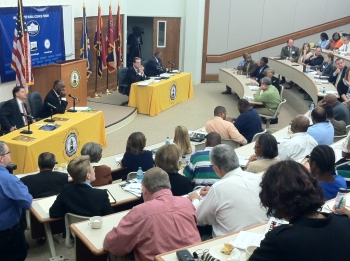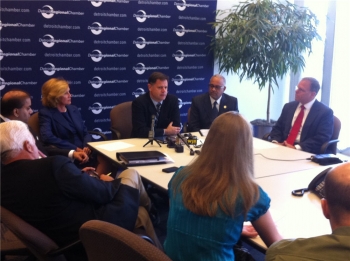Jobs and Innovation Accelerator Challenge Winners Announced
The Obama Administration today announced the winners of the $37 million Jobs and Innovation Accelerator Challenge, a multi-agency competition launched in May to support the advancement of 20 high-growth, regional industry clusters. Investments from three federal agencies and technical assistance from 13 additional agencies will promote development in areas such as advanced manufacturing, information technology, aerospace and clean technology, in rural and urban regions in 21 states. Projects are driven by local communities that identify the economic strengths of their areas, with funding awarded to the best proposals.
These public-private partnerships are expected to create more than 4,800 jobs and 300 new businesses, as well as retain another 2,400 jobs and train approximately 4,000 workers for careers in high-growth industries, according to grantee estimates. Each of the 20 awards average about $1.8 million per project, and winning clusters will contribute another $13 million in total matching funds.
The winning projects of the Jobs and Innovation Accelerator Challenge announced today include:








